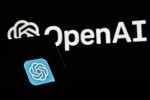- Date
- 7 January 2024
Full Disclosure:
The New York Times Sues OpenAI
By Jaysen Sutton |
Hi Reader 👋🏽,
If I copied articles from The New York Times in this newsletter without attribution, permission or a fair use exception, I would breach copyright law. Copyright is an automatic protection, provided you have produced something original. But what if articles from The New York Times were used to train an AI system? Scratch that, what if millions of articles from the website were scraped, along with lots of other information, as data to train a system? This is the claim from The New York Times, which is asking for billions in damages, in a claim that OpenAI copied millions of its articles to train its AI models (like ChatGPT).
What you should know for your interviews: This is a test case for intellectual property and generative AI. Should the law prohibit the ability to train AI tools using copyrighted information? Or should this be an exception under the common ‘fair use’ policy?
Impact on law firms: The explosion of AI has introduced new legal challenges, with over 100 AI-related lawsuits in the legal system. This includes intellectual property: Stability AI, DeviantArt and Midjourney are among the companies facing lawsuits for scraping copyrighted information without permission to train AI systems. On the confidentiality front, Samsung had to review its policies after information was leaked to ChatGPT.
Have any thoughts? I'd love to hear your perspective below!
| ❓Contact [email protected] with any queries. |
